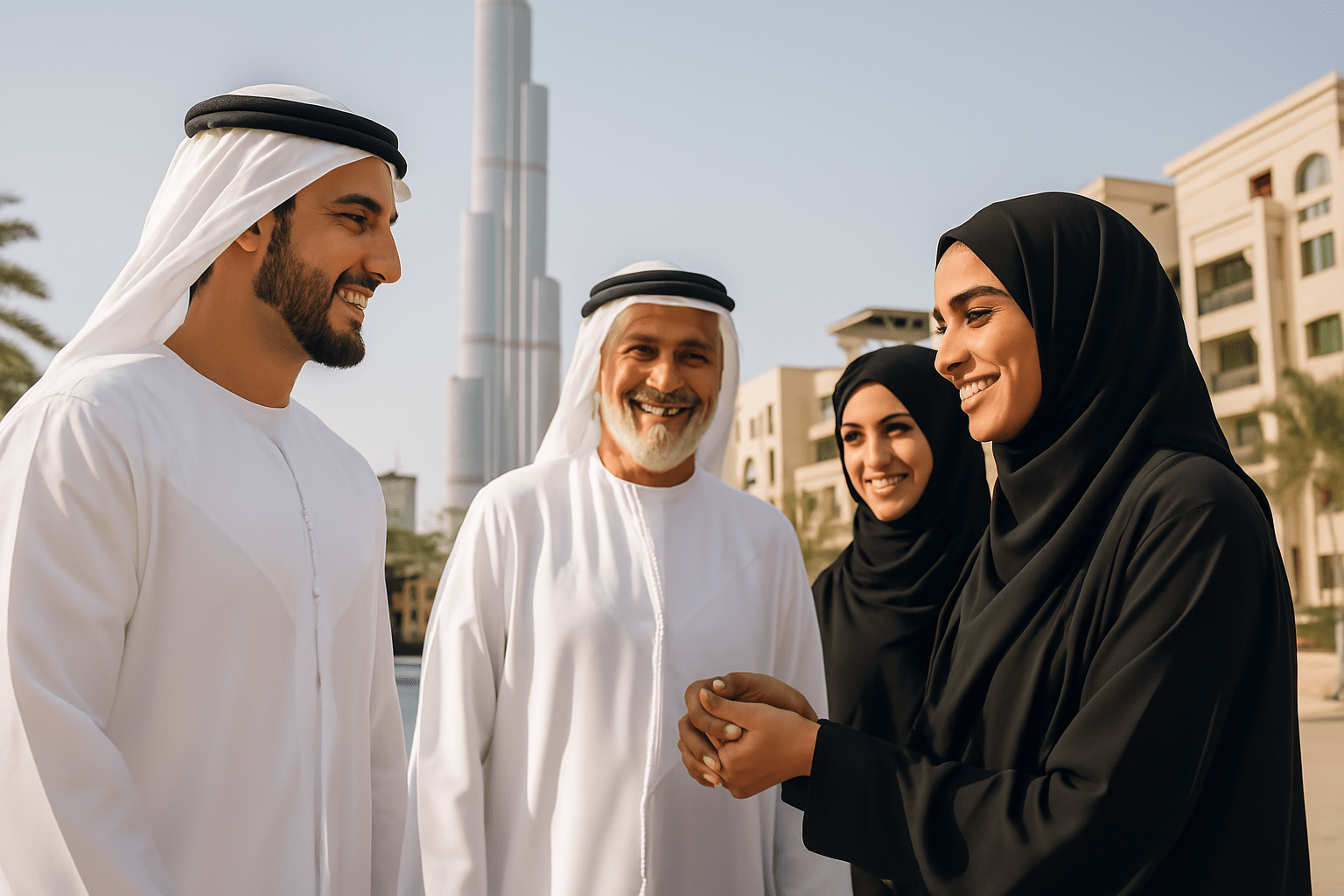Dubai is a modern, multicultural city, but at its heart lies a rich Emirati culture rooted in tradition, religion, and hospitality. Whether you’re a tourist or a new expat, gaining insight into local customs will enhance your experience and help you show respect. Here are 10 key things to know about Emirati culture when visiting or living in Dubai.
1. Islam is Central to Daily Life
The UAE is a Muslim country, and Islamic values shape many aspects of life. Expect to hear the call to prayer (adhan) five times a day, and observe shorter working hours during Ramadan. While Dubai is tolerant, respecting Islamic practices — such as avoiding public eating during fasting hours in Ramadan — is essential.
2. Modesty in Dress is Respected
Dubai is more relaxed than other Gulf cities, but dressing modestly is still appreciated. Women should avoid overly revealing clothing in public places like malls or government buildings. Men should also avoid going shirtless outside the beach or pool. Shoulders and knees covered is a good rule of thumb.
3. Emirati Hospitality is Generous
Hospitality is a cornerstone of Emirati culture. If you’re invited to an Emirati home, expect dates and Arabic coffee to be served. It’s polite to accept with your right hand and express gratitude. Guests are treated with deep respect — it’s considered an honor to host someone.
4. The Arabic Language
While English is widely spoken in Dubai, Arabic is the official language. Learning a few basic words like “Shukran” (Thank you) and “Salam Alaikum” (Peace be upon you) shows cultural respect. Many signs, government documents, and public announcements are in both Arabic and English.
5. Family is the Foundation
Family plays a central role in Emirati life. Households often include extended family members, and strong bonds are maintained through weekly gatherings and shared meals. Emirati society places high importance on loyalty, respect for elders, and community values.
6. Public Behavior Etiquette
Dubai is cosmopolitan but has cultural boundaries. Public displays of affection (PDA), such as kissing or hugging, should be avoided. Swearing, loud arguments, and gestures deemed offensive can lead to fines or legal action. Respect for others’ space and dignity is part of daily etiquette.
7. The Role of Women
Emirati women are highly respected and have a growing presence in education, business, and government. They often wear the traditional abaya and shayla, though this is a choice. Visitors should be mindful and courteous when interacting with women — avoid physical contact unless initiated and always ask permission for photos.
8. Religion and Non-Muslims
Dubai is open to all faiths. You’ll find churches, temples, and gurdwaras operating freely. However, proselytizing or disrespecting Islam in any way is a serious offense. Visitors of all beliefs are welcome — as long as they show respect for the UAE’s religious foundation.
9. Traditional Clothing and Identity
Many Emiratis wear traditional dress with pride. Men wear the white kandura and headscarf (ghutra or shemagh), while women wear the abaya. These garments are not just for tradition, but also for comfort in the hot climate. It’s respectful not to imitate these outfits for fun or fashion.
10. Coffee and Dates – Symbols of Welcome
Arabic coffee (gahwa) and dates are not just snacks — they’re symbols of hospitality. Served at homes, offices, and events, they represent a warm welcome. Accept with your right hand and slightly shake the coffee cup when finished — a small but meaningful cultural gesture.
Conclusion
Understanding and appreciating Emirati culture helps you connect more deeply with the people of Dubai and the UAE. It’s a culture of pride, hospitality, and respect — values that shine even in the city’s fast-paced, global environment. Embrace the traditions, and your experience in Dubai will be all the more rewarding.
FAQ
- Can non-Muslims visit mosques in Dubai? – Yes, certain mosques like Jumeirah Mosque offer guided tours for non-Muslims.
- Is Dubai strict about clothing? – No, but modest dressing is expected in public places and religious sites.
- Is it okay to take photos of locals? – Always ask for permission, especially when photographing Emirati women or families.


